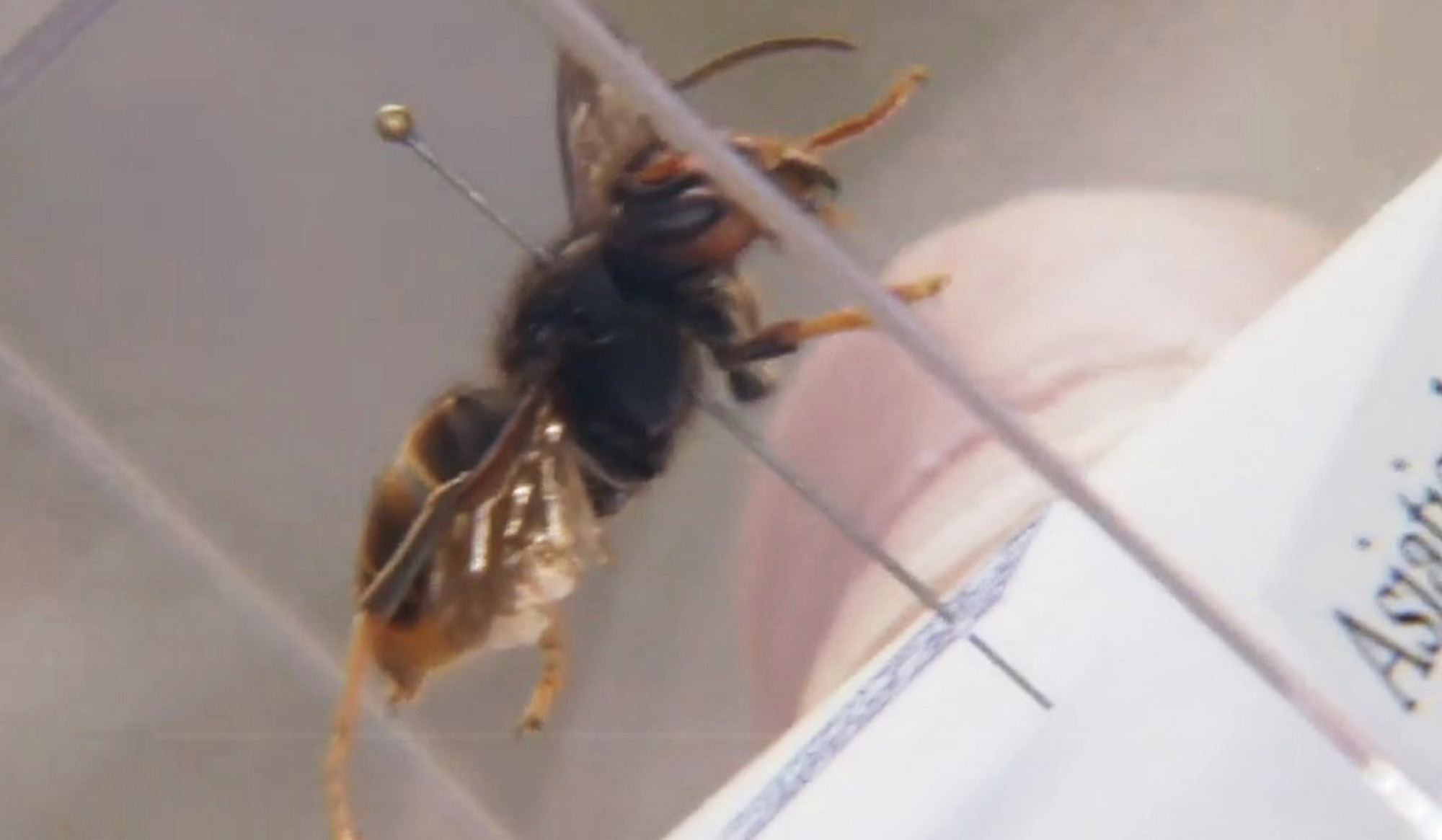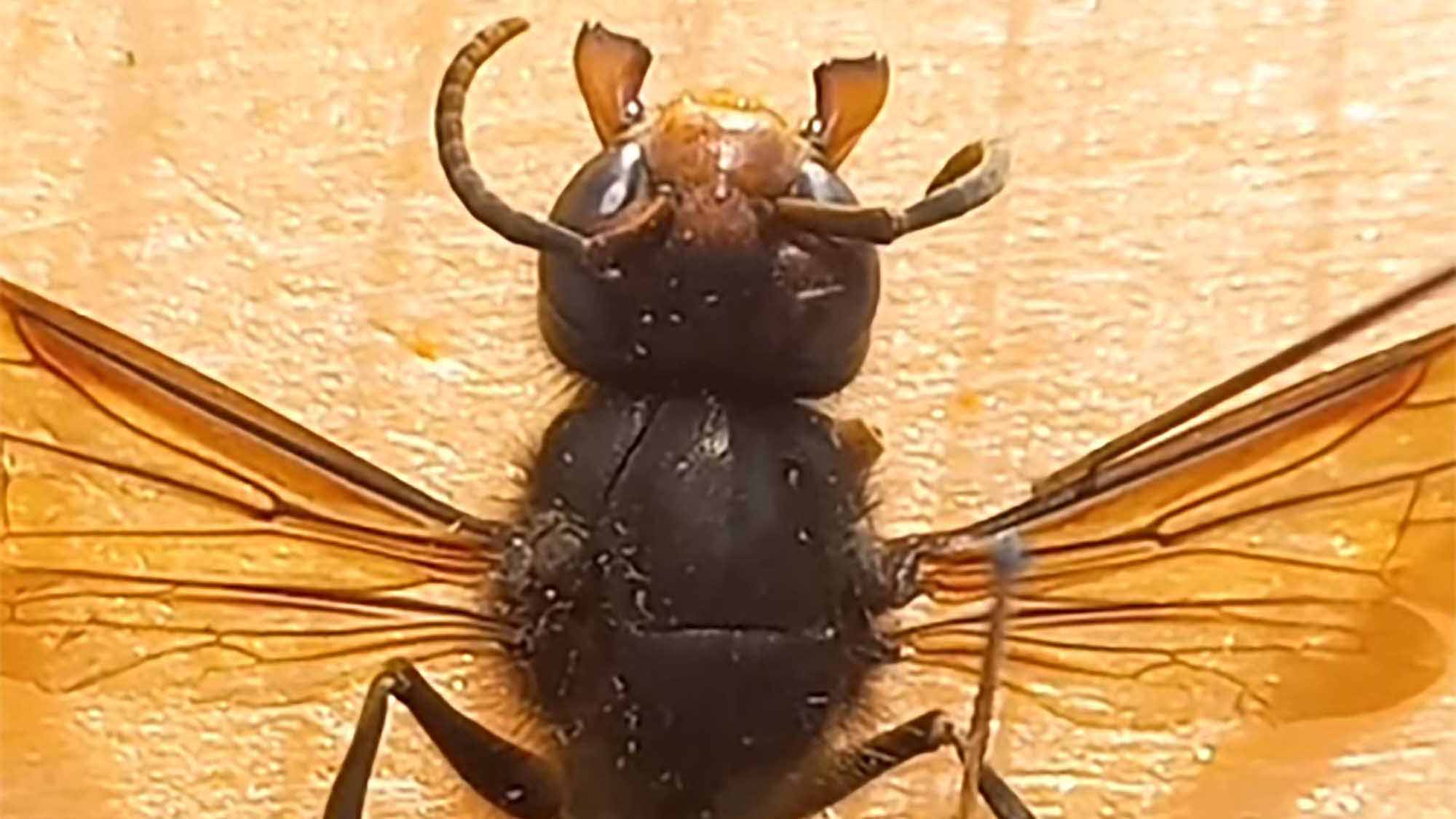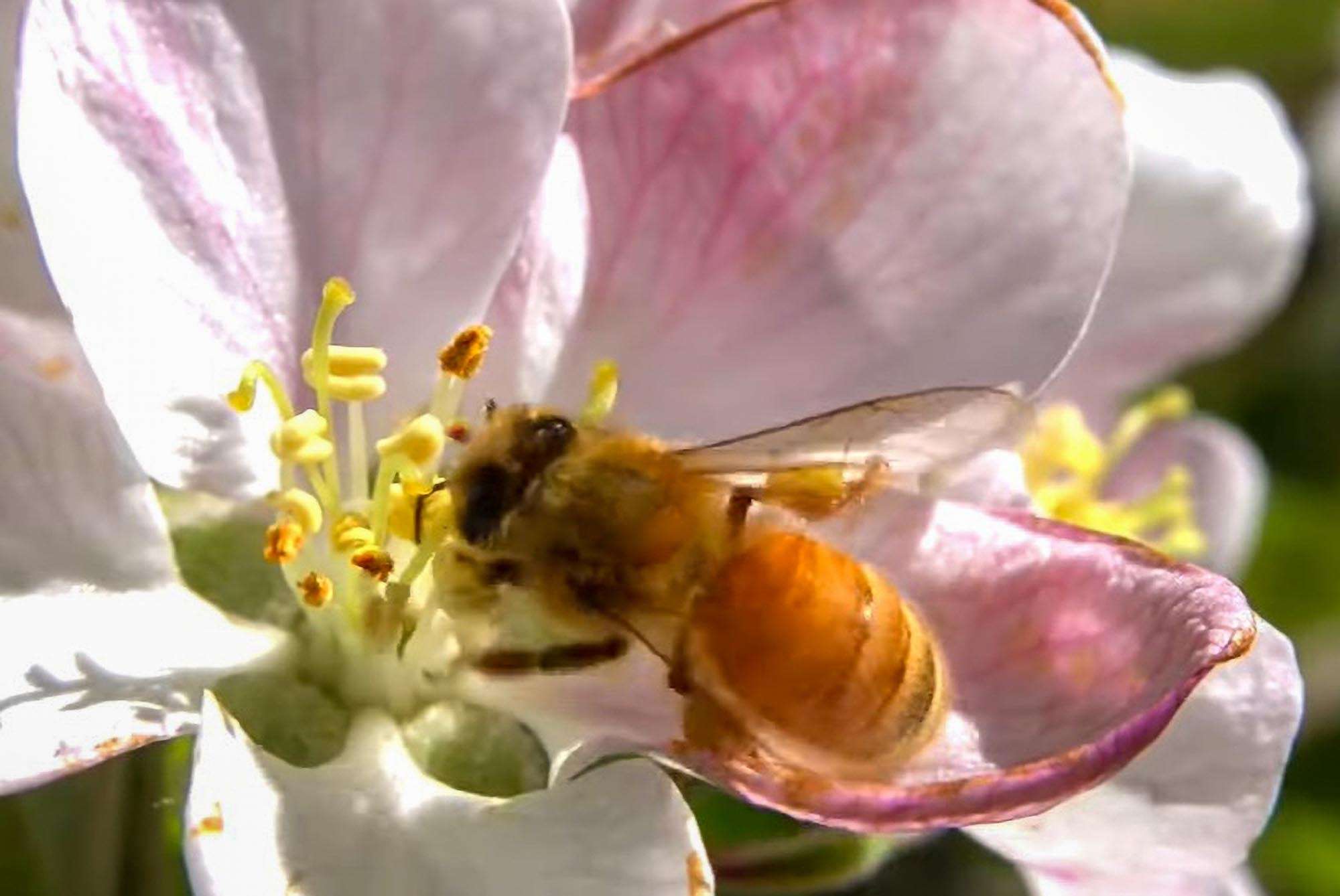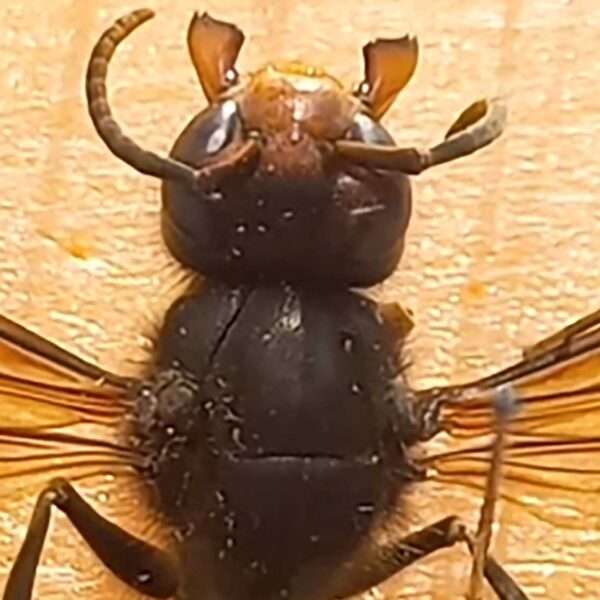German authorities have been accused of showing not enough effort in fighting the proliferation of a dangerous invasive species.
In the past 10 years, the Asian hornet has spread across vast parts of the country. While the states of Rhineland-Palatinate, Hesse, Saarland and Baden-Württemberg have been most affected, the predatory insect also made its way to Hamburg and Berlin.
Asian hornets attack and eat other insects. They are capable of killing a whole honeybee colony.
Now an experienced German beekeeper criticised the decision-makers in his country for not dedicating sufficient funds to the fight against the species also known as Vespa velutina and Vespa velutina nigrithorax.
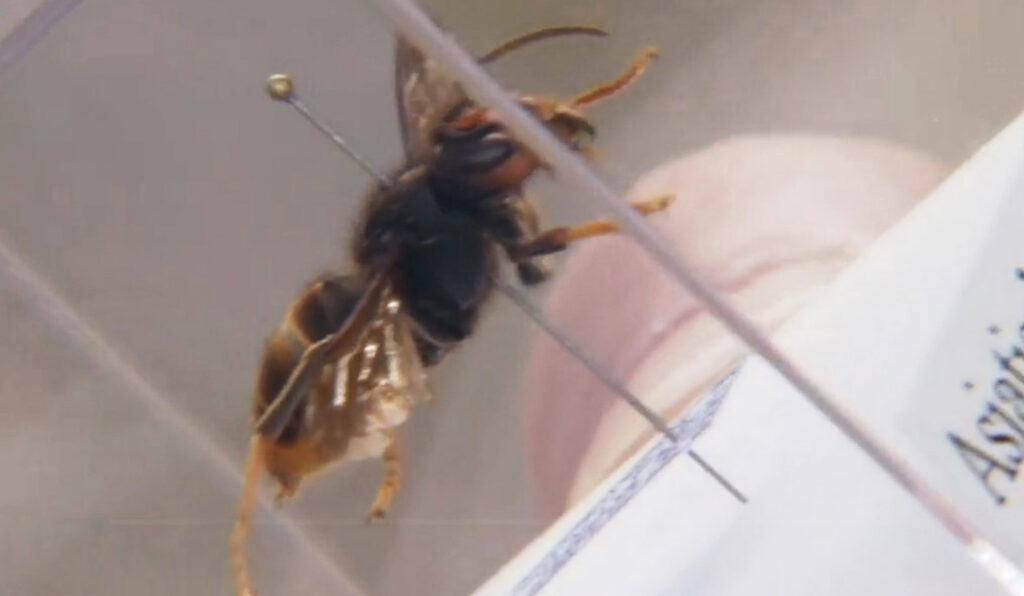
Thomas Hock, who heads the Rhineland-Palatinate Beekeepers Union, said: “We have to consider this issue as a biodiversity problem which affects all of us. It’s not a topic only apiarists are forced to deal with.“
Speaking to the Bild newspaper, Thomas argued: “France is spending more than EUR 60 million (GBP 52 million) a year on its fight against the Asian hornet. The German Environment Ministry has deployed one part-timer and a few thousand Euros on what can only be referred to as an attempted combat.”
His colleague Eckhard Richter emphasised: “Honeybees don’t forage if temperatures drop below 10 degrees centigrade. Asian hornets, however, are not bothered. They fly at temperatures as low as four degrees.”
Eckhard warned: “Beekeepers will suffer a lot if Asian hornets continue to spread. They disturb the bees’ wintertime retreat. But the ecosystem as a whole will suffer even worse.”
Asian hornets came to Europe in cargo from China in 2004. Their nests, which can feature around 5,000 animals including several queens, can be found in treetops, bushes and abandoned buildings.
The insects are regarded as an invasive species by the European Union’s nature regulations. This means that residents of the EU-27 must not keep, breed or sell them.

